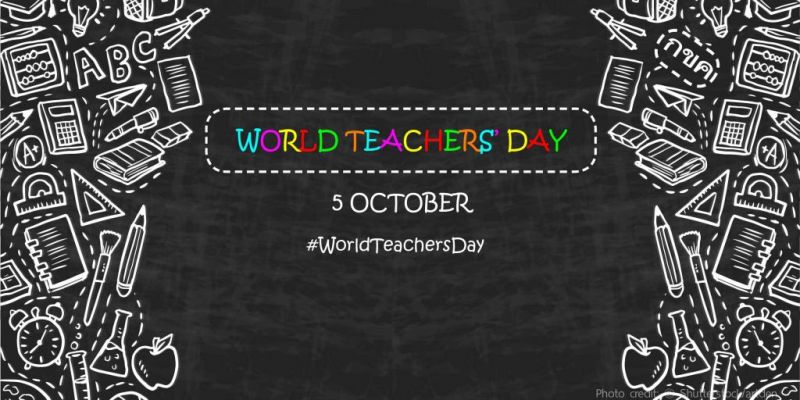Teachers have their say: UNESCO Bangkok recognizes education’s transformational role
Every girl and boy has a right to education – and that means the right to be taught by a qualified teacher. Established in 1994, World Teachers’ Day recognizes education’s central role regarding so many of the present-day challenges, from gender inequality and health to dealing with climate change and ensuring sustainable development. In turn, solving those challenges sets the foundations for UNESCO’s core mission of building peace.
As the international commemoration is marked on 5 October, under the theme of “The right to education means the right to a qualified teacher”, UNESCO Bangkok along with SEAMEO and the Teachers’ Council of Thailand is reaching out to more than 500 teachers, teacher trainees and school directors to ask them their goals, priorities and aspirations in this vital profession.
What is the primary responsibility of a qualified teacher? What constitutes happiness within the profession? What duties does an educator have beyond the tests and textbooks?
 Those educators are the embodiment of the region’s commitment to Sustainable Development Goal 4, to ensure inclusive and equitable quality education and promote lifelong learning opportunities for all, in particular Target 4.C on substantially increasing the supply of qualified teachers. UNESCO Bangkok’s focus areas to attain that goal include policy support to improve education quality, capacity-building to prepare teachers for sustainability, and monitoring and advocacy improving the status of teachers.
Those educators are the embodiment of the region’s commitment to Sustainable Development Goal 4, to ensure inclusive and equitable quality education and promote lifelong learning opportunities for all, in particular Target 4.C on substantially increasing the supply of qualified teachers. UNESCO Bangkok’s focus areas to attain that goal include policy support to improve education quality, capacity-building to prepare teachers for sustainability, and monitoring and advocacy improving the status of teachers.
Across the Asia-Pacific, gender equality in education underpins every effort in the ethic of ‘no one left behind’. In such a diverse region, impediments to girls and women’s education range from sheer bigotry and stereotypes to the lack of hygienic toilet facilities and girls being forced into workforce at an early age. In Cambodia, Myanmar, Nepal, Sri Lanka and Uzbekistan, UNESCO is working to support teachers to address related problems through gender-sensitive policy-making and teacher development.
Other UNESCO projects making a tangible difference in the region include capacity development in Lao PDR, where a national comprehensive teacher policy is being reinforced by enhancements to early childhood teacher education and encouraging girls’ to participate in STEM subjects. A massive reform initiative in Myanmar is expanding teacher education to a four-year programme based on new competency standards, teaching materials and online learning.
As the Regional Bureau Education Office reaching out to educators across the Asia-Pacific, UNESCO Bangkok recognizes the essential role of qualified teachers. In the words of Kofi Annan, former UN Secretary-General and Nobel Peace Prize Laureate: ‘Knowledge is power. Information is liberating. Education is the premise of progress, in every society, in every family.’









